Dragon Quest Heroes II follows the story of two cousins, Lazarel and Teresa, who live in the land of Dunisia. The world lives in peace and harmony and fear bringing about another terrible war. The cousins are visiting the land of Harba when the Dunisian army arrives and attacks Harba without warning, forcing the two to fight against their own countrymen to protect their new friends. The heroes must set out to the land of Accordia to figure out what could have prompted their homeland to break the peace.
Like all DQ titles, Dragon Quest Heroes II, is a cheesy, bright and charming JRPG romp with just enough moments of darkness. The cast is enjoyable but mostly dominated by the Heroes II-exclusive characters, although there are a few cameos from other DQ heroes. The two protagonists are basically reversed versions of the prior game's heroes. This time, Theresa is the thoughtful one who plans things out and Lazarel is the excited action-prone one who needs to be reined in. It makes them feel a little less interesting though I think both are better executed than their Heroes I counterparts were in their respective roles.
If you've played the first DQH, then the core gameplay in DQH 2 will feel very familiar. It's effectively a Dynasty Warriors game with a few minor twists. Instead of the franchise's traditional Musou moves, you have magical spells that cost MP to use. You can use the spells as long as you have MP, so you have more crowd-clearing power than a normal Dynasty Warriors protagonist. You have a party of four and can swap between them at will, and there's even a new Tag attack mechanic that rewards you for attacking without stopping. This also means that characters build up Tension, which can be spent to enter a temporary super mode where you can perform special attacks.
The biggest twist to the gameplay mechanics is that they've largely changed how the levels are laid out. In the prior game, you were playing a fancy game of tower defense. You had objects to guard and had to position monsters to slow down enemies while your squad of heroes rushed forward to smash enemy objectives. In DQH 2, the defense missions are far less focused. You'll get a wide mix of quests ranging from escorting NPCs to defeating bosses and teleport mazes. The bulk of them involve smashing enemies to pieces, but they tend to be designed more like dungeons or traditional stages rather than defense missions. If your biggest complaint about DQH was the tower defense setup, then DQH 2 fixes that in spades.
Part of this change means that Monster Medals have significantly reduced in meaning. In the prior game, Monster Medals were a key part of the gameplay. You had to set up proper defensive formations using collected medals to prevent enemies from smashing your defensive targets while the protagonists were away. In DQH 2, they are little more than fancy power-ups. They either perform a single spell, create a temporary ally, or allow you to temporarily transform into a powerful monster. The last is probably the coolest of the lot and gives you a brief chance to take control of some classic Dragon Quest monsters. It is fun, but the monsters are mostly reduced to spamming one or two moves until their time runs out.
The new medal system is fun but also ignorable. The non-transformation medals aren't particularly useful, unless the game is forcing a gameplay mechanic on you. For example, you come across a dungeon full of poison swamp traps that can be negated by Bubble Slime medals. Then the game coincidentally throws a dozen Bubble Slime medals at you! Medals are semi-randomly dropped, so you can't plan around them, and that's why they're more akin to power-ups than core gameplay mechanics.
As with the previous game, DQH 2 features a male and female protagonist and a cast of party members. Not every DQ characterreturned in the story mode, but there are plenty of new characters to fill the niche. As with the prior title, each character has a distinctive play style. Cesar is a sword-wielding brute whose spells enchant his blade to do elemental damage. Torneko has powerful support skills, and he uses his impressive bulk and collection of items to inflict bad statuses on enemies before smashing them. Some characters have a lot in common with missing characters, such as Maribel sharing gameplay mechanics with Ilsa.
A welcome change from DQH is the addition of a job system for the main characters. While every other character is locked into a specific play style, Lazarel and Teresa can swap into a variety of traditional DQ job classes like martial artist, mage or priest. The jobs have some overlap with characters who already fill them. For example, the martial artist plays a lot like Alena. This means that your plot-locked protagonist isn't forced into a single play style. The downside is that swapping jobs reverts you back to level one. It's effectively like leveling up a new character, except for a few cross-class bonuses. It doesn't take long to level up again, but it limits the fun of swapping between characters.
The biggest change to DQH 2 is that it's designed more like a traditional JRPG. You have a central hub town called Accordia, but from there, you can travel through Wild Zones, which are large, open areas that separate the dungeons (War Zones) from the rest of the game. They're full of monsters, side-quests, optional bosses and hidden treasures. They're also filled with Zoomstones that you need to find to quickly travel between locations.
I'm torn about the Wild Zones. They seem like a fine idea, but they don't add much to the game beyond making it feel more like a true Dragon Quest. They're unfocused and lack the drive that pushes these sorts of games forward. I never got excited about finding a new Wild Zone, and the only time I stopped to fight monsters was when I found a character in need of help or wanted to finish a side-quest. Warriors titles are quick, bite-sized chunks of near-constant action, with objectives and goals constantly pushing you forward. Wild Zones don't fit that play style very much.
Like the previous game, a lot of DQH 2's most nagging flaws are due to nostalgia. Performing basic actions takes longer than it needs to due to the slower text speed, lengthy music jingles, and the illusion of a town that replaces what would be a menu in Hyrule Warriors. Does it make the game feel more Dragon Quest? Absolutely. The smallest detail is designed to evoke that care and nostalgia, and as a Dragon Quest action-RPG, it succeeds even better than the first. As a Warriors game, however, it's easy to feel like these bits of nostalgia or DQ flavor get in the way of enjoying what makes those games excel.
DQH 2 also brings in a multiplayer mode, so players can take on either a story mission or special bonus dungeons with other players. Unlike the main mode, you only can pick one character, but up to four people can play together. It's a welcome change since Dynasty Warriors is always more fun with friends, although few of the story missions benefit from splitting up the party. There are plenty of defense missions, which are improved by having a friend along for the ride. The multiplayer adds some extra value to the game and gives DQ fans a chance to play with their friends.
Visually, DQH 2 hasn't changed much from the first game, but that's fine because the first was one of the best-looking Warriors titles on the market. It's bright, colorful, well-animated, and everything pops. It looks good on its own merits and as a DQ title. The soundtrack and voice acting are also both excellent. While the Japanese voice track is available, I can't recommend the English one highly enough. The cheesy over-the-top accents and chipper voice acting do wonders to set the mood of the game. There are almost no bad voices in the lot, and several moments in the game absolutely shine. It's a delight from start to finish.
It's difficult to judge how successful Dragon Quest Heroes II's changes are because at the end of the day, they are both drastic and minor. The core gameplay is almost the same, but the shift in gameplay changes the feel. Someone who enjoyed the focused tower defense gameplay of Dragon Quest Heroes would be less pleased with this iteration. Taken on its own merits, it's a fun enough game, and its flaws are relatively minor. Multiplayer alone should be enough to give it an edge. Fans of Dragon Quest should enjoy DQH 2 regardless, and newcomers should find it just as good of a starting point as the previous title. Be prepared to be overwhelmed by the puns.
Score: 8.5/10
More articles about Dragon Quest Heroes II


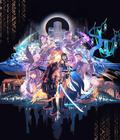
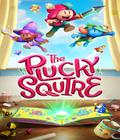

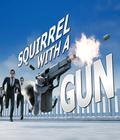
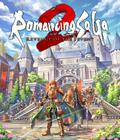
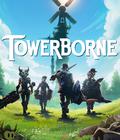

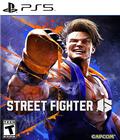

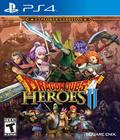 Set in a new world with new heroes and story, Dragon Quest Heroes II is an action-RPG that sends players on a grand adventure to restore order to a once-peaceful world, with thrilling battles of epic proportions along the way.
Set in a new world with new heroes and story, Dragon Quest Heroes II is an action-RPG that sends players on a grand adventure to restore order to a once-peaceful world, with thrilling battles of epic proportions along the way.








































